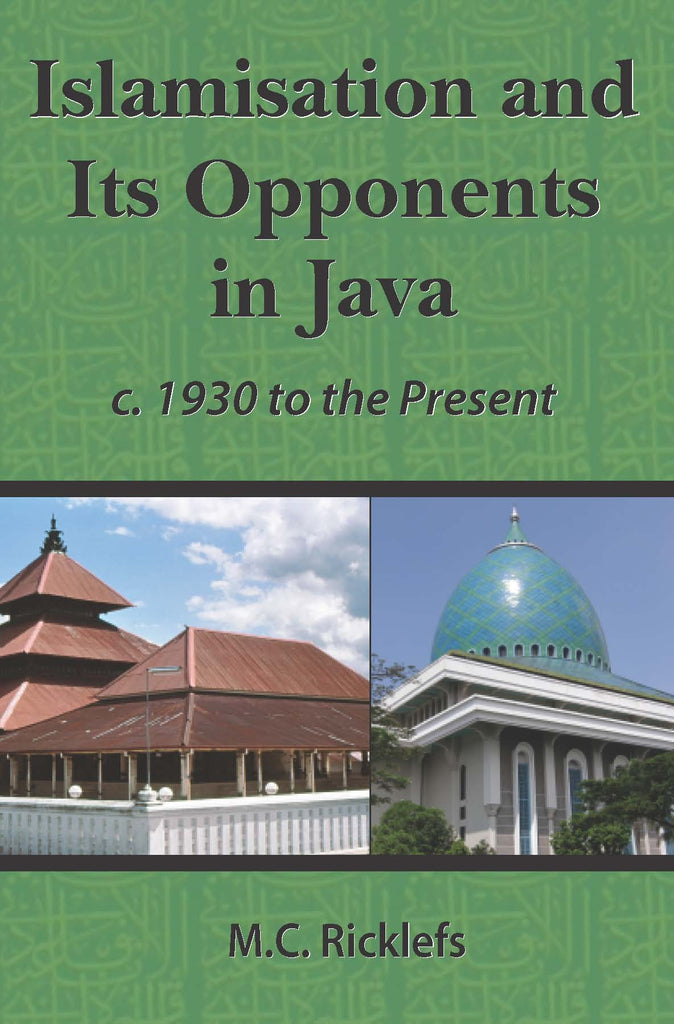Islamisation and Its Opponents in Java: A Political, Social, Cultural and Religious History, c. 1930 to Present
$45.00 SGD
Winner of the 2015 George McT. Kahin Prize of the Association for Asian Studies. This award is given biennially to an outstanding scholar of Southeast Asian studies from any discipline or country specialization to recognize distinguished scholarly work on Southeast Asia beyond the author's first book.
Longlist
ICAS Book Prize 2015 for Best Study in the Humanities. From a total of 175 submitted books, 10 were long listed.
The Javanese – one of the largest ethnic groups in the Islamic world – were once mostly 'nominal Muslims' with pious believers a minority and the majority seemingly resistant to Islam's call for greater piety. Over the tumultuous period analyzed here – from colonial rule through Japanese occupation and Revolution to the chaotic democracy of the Sukarno period, the Soeharto regime's aspirant totalitarianism and the democratic period since – that society has changed profoundly to become an extraordinary example of the rising religiosity that marks the modern age.
Islamisation and Its Opponents in Java draws on a formidable body of sources, including interviews, archival documents and a vast range of published material, to situate the Javanese religious experience from the 1930s to the present day in its local political, social, cultural and religious settings. The concluding part of the author's monumental three-volume series assessing more than six centuries of the on-going Islamisation of the Javanese, the study has considerable relevance for much wider contexts. Beliefs, or disbeliefs, about the supernatural are important in all societies, and the final section of the book, which considers the significance of Java's religious history in global contexts, shows how it exemplifies a profound contest of values in the universal human search for a better life.
"A feast of insights...If for no other reason than the pleasure of enjoying this fruit of sovereign scholarship, this clearly written and thoroughly argued text is well-worth reading. No doubt that this monument will stand for a long time to come. . . . [Ricklefs's book] invites new ethnography that deeply understands the rapid and radical changes in culture and society during the Soeharto and post-Soeharto periods."
Niels Mulder
"The trilogy as a whole should become standard reading in the fields of both South East Asian history and Islamic history, whose cannon has lacked works with this level of precision based outside the traditional heartlands of Islam. Merle Ricklefs deserves much praise for what has accomplished here."
Kevin W. Fogg, Oxford Centre for Islamic Studies and Faculty of History, University of Oxford
""This book strikes me as one of the most masterful ever written on relgiion and politics in Indonesia... This is, in other words, a brilliant book by a historian at the peak of his craft."
Robert W. Hefner, Boston University
"...draws masterfully on a diverse range of sources...brings his wide-ranging and richly textured history of Islam in Java to a highly satisfying conclusion. Whether read together with his two earlier volumes or as an independent work of scholarship, Ricklefs's book is both easily accessible for non-specialists and thoroughly engaging for those already well-versed in modern Indonesian Islam"
Megan Brankley Abbas, Princeton University
M.C. Ricklefs is Professor Emeritus of the Australian National University. He was formerly Professor of History at the National University of Singapore and Monash University, and Director of the Research School of Pacific and Asian Studies at the Australian National University. A Fellow of the Australian Academy of the Humanities, he is the author of Polarising Javanese Society: Islamic and Other Visions (c.1830-1930) (NUS Press, 2007) and Mystic Synthesis in Java: A History of Islamisation from the Fourteenth Century to the Early Nineteenth Centuries (EastBridge, 2006).
Publication Year: 2012
560 pages, 229mm x 152mm
ISBN: 978-9971-69-631-3, Paperback
NUS Press

